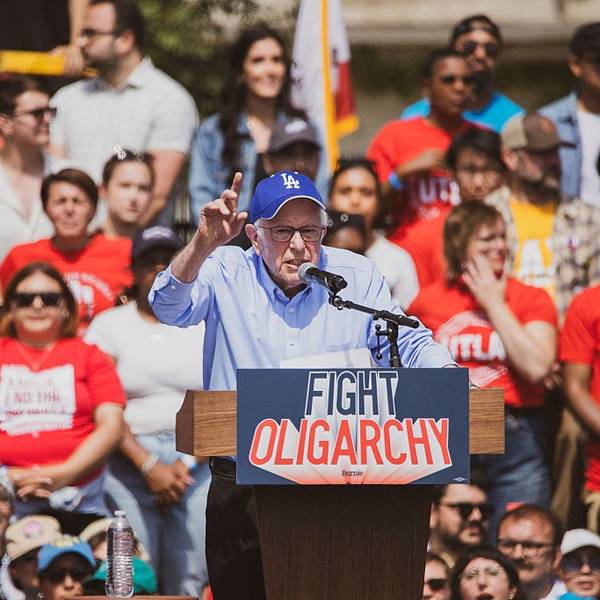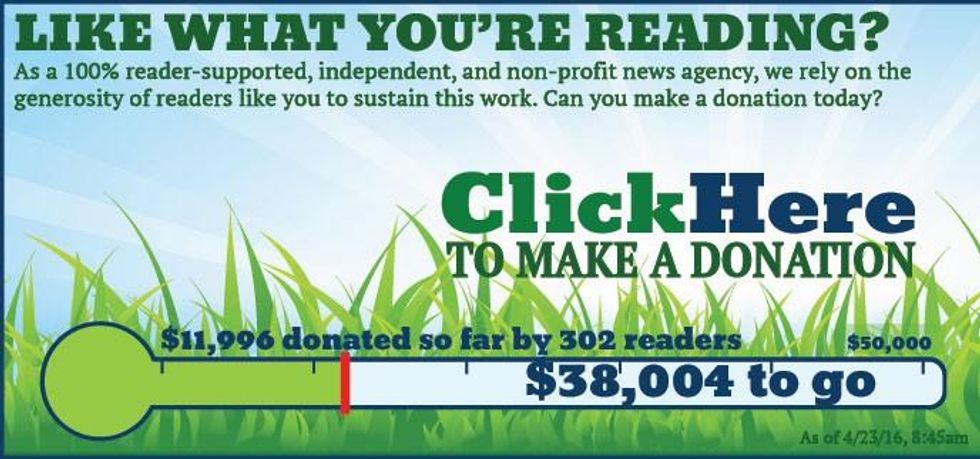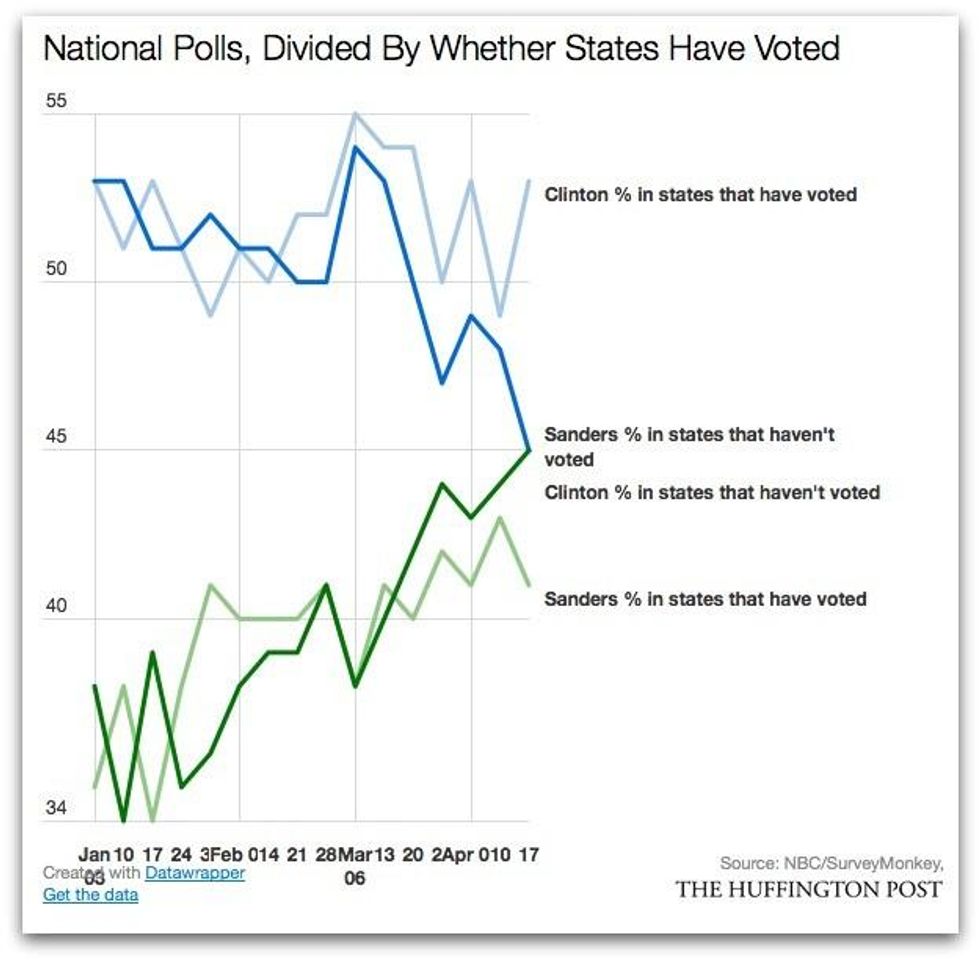Confronted on multiple weekend news shows over his campaign strategy going forward, Bernie Sanders assured his supporters in no uncertain terms on Sunday that the race for the Democratic nomination is not yet over and that every voter in upcoming state contests will have a chance to have their voice counted ahead of the party's national convention this summer.
"We're going all the way to California," Sanders told George Stephanopolous on ABC's "This Week" on Sunday morning.
Sanders mentioned his campaign stop in Baltimore, Maryland on Saturday and said the endemic poverty he sees in such cities is a major reason why the status quo of "establishment politics" and "establishment economics" must be overcome.
"The level of poverty there is beyond belief," Sanders said. "The fact that we have so much income and wealth inequality, the fact that so many of our kids are graduating college deeply in debt, the fact that we're really not engaging in the planetary crisis of climate change, these are the issues that we need to be debating."
Maryland--in addition to Connecticut, Pennsylvania, Rhode Island, and Delaware--all have Democratic primary contests on Tuesday.
"We're going to take our campaign through California, through the D.C. primary," Sanders continued. "We're winning a whole lot of support. I believe that after winning 16 states already, we're going to win a lot more throughout this process."
The competitive primary process, Sanders added, "is good for democracy" and "it's good for the Democratic Party."
Watch his full interview on "This Week":
While questions about the "path forward" have swarmed the Sanders campaign since his loss in New York last week, the candidate has attempted to steady the ship by assuring supporters that nothing about his campaign has fundamentally changed. On Sunday's "Meet the Press" on NBC, Sanders told host Chuck Todd that even though he agrees with his rival Hillary Clinton that there's certainly much that "unites" those voting in the Democratic primaries, there also remains "a lot that divides" as well. Those distinctions, he indicated, remain important for those who have yet to vote in the primary and will be crucial divides to bridge once the ultimate nominee emerges.
"I think the fact that all of us are in agreement that Donald Trump would be a disaster for this country if he became president unites us," explained Sanders. "The fact that we understand, for example, that climate change is real while our Republican opponents ignore that reality unites us."
"On the other hand," he continued, "I think what divides us is the understanding on the part of millions of people who are supporting my candidacy that it really is too late for establishment politics and establishment economics. We have to deal in a very substantive way with income and wealth inequality. We need to understand why we're the only major country on Earth not to guarantee health care to all people, not to have paid family and medical leave. And that we have to deal aggressively with a corrupt campaign finance system which allows big money interest to buy elections. Those are areas I think of difference."
Watch the full interview:
While a mainstream media narrative has continued to discount Sanders' ability to surpass Clinton in pledged delegates prior to July's convention in Philadelphia, an analysis of poll averages by the Huffington Post on Saturday showed that support for Sanders nationally has virtually wiped away Clinton's once substantial lead. Those gains are particularly striking, as the reporting emphasizes and the following graph shows, in states that have yet to vote:
Asked by Todd what it would take to for Clinton--in the event she was able to secure the nomination--to win the support of those who have been so energized by his campaign, Sanders said that it would be up to her to win their trust on very key issues.
"Your supporters," said Todd, "are, for the most part, very skeptical of Hillary Clinton. Very, very skeptical. Tougher on her, frankly, than you ever are. You know, people talk about all this back and forth. What do you think she--what's your advice to her on winning your voters over?"
To which Sanders responded: "Well, I think she's going to have to be very explicit about supporting a program, which stands up for the needs of the middle class and working families, which, most importantly, makes it clear that she is prepared to take on Wall Street in a very clear way, take on the billionaire class, come up with a program that makes health care for all in this country a right within the next several years. I think those are some of the issues she's going to have to bring forth."
Asked a similar question on "This Week," Sanders responded similarly, but also added that his supporters are not his to control. "You know, I can't snap my finger and tell people what to do," he said.
Meanwhile on Sunday, billionaire rightwinger Charles Koch made headlines for telling television viewers "it's possible" that Clinton would be a better presidential choice in his mind than the remaining Republican candidates.





